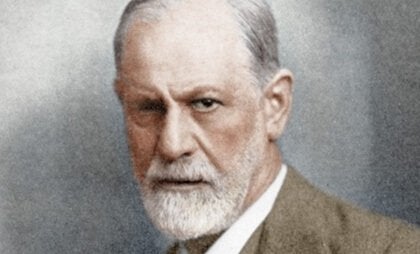Sigmund Freud’s legacy for neuroscience is now more valid than ever. The famous Viennese psychoanalyst has pioneered in many ways, proving in particular that many of our mental processes are unconscious. I didn’t need an MRI to make us see that our mind has immense and almost unknown potential.
Today we live in a context that many scientists want to call “neuroculture”. The term “neuro” already precedes a large number of fields of study that emerge almost as if by magic. Do we have neuromarketing, neuroeducation, neurocreativity, neuroeconomics?
- Most scientists have understood this: everything that human beings are and does is the initiative of this sensational body.
- Knowing it.
- Knowing how it works.
- How it processes information and responds to our environment will help us better understand our behavior.
- In the words of Fernando Vidal.
- Professor of Sociology at the University of Barcelona: people have no brains.
- Do they?Brain.
This led neurologists like David Eagleman to thank the foundations Sigmund Freud laid in his time with his theories, studies and essays, his legacy is more alive than ever.
“The mind is like an iceberg, it floats with a seventh of its volume in the water. “Sigmund Freud?
Sigmund Freud’s legacy for neuroscience is called unconscious. Eric Kandel, a neurologist and Nobel Prize in Medicine, wrote in his book The Age of Insight (2012) that we still owe much more today than we think to the father of psychoanalysis. It should be noted that many of his theories are now obsolete.
Experts agree, for example, that his contributions to the field of sexuality are not sustainable today, he pioneered this path to understand who we are, many of the pathologies he spoke of (remember female hysteria) make no sense. However, everything related to mental processes and the revolutionary concept of the unconscious certainly marked a before and after.
Therefore, it is necessary to delve a little de further into the impact that many of your claims have had (and have) on the field of science.
Sigmund Freud has received constant criticism for his innovative theories. It was this man who dared to interpret the dreams. He stood up as a figure who discovered the importance of the unconscious and wanted to open a path to reach this universe hidden in the human mind.
Now, as he once said, any revolutionary theory is usually sanctioned in its in the beginning. In one of his diaries, he wrote that throughout history, there were (in his opinion) three injustices:
Neurologists such as David Eagleman and Erik Kandel defend Sigmund Freud’s legacy for neuroscience. His claims are now more valid than ever for several reasons.
When Sigmund Freud placed her patients on a couch trying to discover her childhood problems, she discovered the structure of the mind and also had another goal: to calm her down and cure her.
Patracia Churchland, a psychologist at the University of California and Daniel Dennett of the University of Massachusetts, point out that Freud’s legacy for neuroscience is immense for several reasons: she did not prescribe medication, she used speech therapy; psychoanalysis took time, during which the therapist gradually dug the leafy labyrinths of the human psyche.
Identify defense mechanisms, impulses, traumas, hidden needs, failures and fears of limitation. Taking all the mud out of conscious mental depths brought relief and liberation. Medications weren’t always necessary.
In conclusion, brain science is undoubtedly one of the most relevant areas today, so we must accept Sigmund Freud’s legacy for neuroscience, it was the first spark that allowed us to ignite the fuel of a journey that is just beginning.
He pioneered this path to understand who we are, in this way he showed us the enormous potential that we have at our disposal thanks to this sensational body.

